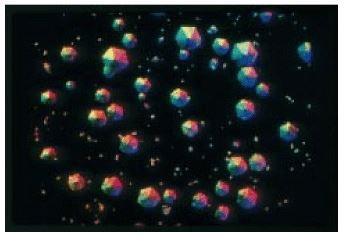Nutritional Value
The food and portion size Egg Whole Cooked Hard Boiled
Composition in terms of carbohydrates, lipids, and proteins:
Carb – 1.12
Lipids– 10.61
Proteins – 12.58 gms
Calories in food item: 155 kcal
Common vitamins found are:
VIt A, RAE– 149ug
Vit A IU – 520
Vit B-12 – 1.11ug
Vit B-6 – 0.121mg
Vit E -1.03 mg
Vit D – 87 IU
Vit D (D2+D3) – 2.2ug.
Folate DFE – 44ug
Common minerals in this food item:
Calcium – 50 mg
Iron – 1.19 mg.
Other important nutritional components of this food item
Thiamin – 0.066mg
Riboflavin – 0.513mg
Niacin – 0.064mg
Magnesium – 10mg
Potassium – 126mg
Sodium – 124mg
Zinc – 1.05mg
Phosphorous – 172mg
Water content in hardboiled Egg – 74.62 gms
Water is important to live because it is an efficient solvent and dissolves essential minerals and vitamins for absorption in the body. Food consumed by humans needs to be dissolved and broken down. Water can dissolve proteins, salts, or sugars (Water, n.d., para 3).
Biological Molecule
The most abundant category of biological molecule in the hardboiled egg is Proteins
Structure and functions of the Protein molecule
Structure – The protein molecule is essentially made of 20 amino acids (Berg et al., 2002). All of these 20 amino acids or the building blocks of the protein molecule are connected with peptide bonds. These bonds help the proteins to form chains, called polypeptide chains (Berg et al., 2002). Proteins also have a secondary structure which is principally made of amino acids and can form other structures called the Alpha Helix, Beta Sheet, and Turns and Loops (Berg et al., 2002). The third structure of the protein molecule is made of water-soluble proteins; these assist the protein molecule in forming more condensed structures. A fourth structure found in the protein molecule is the quaternary structure which allows the polypeptide chains to assemble into multiple sub-unit structures (Berg et al., 2002).
Functions – Proteins are molecules in the human body and serve some very important functions. They are extremely essential for the functioning of all biological processes. The most essential functions of proteins are the storage and transfer of oxygen. Proteins are rightfully termed as the building blocks of a cell. They provide immunity, control growth, and provide mechanical support to the human body. Proteins are made of amino acids which help the body cells to renew and grow (Berg et al., 2002).
Below is the figure of a protein, Human Insulin (Berg et al., 2002)

Recommendation
I would recommend a boiled egg as an important food item for a healthy nutritious diet. According to the Dietary Guidelines for Americans (2010), an egg is an essential protein food that is nutritionally dense and provides the necessary proteins, vitamins, and minerals with relatively few calories. It has no added sugars, starch, or fats which makes it completely natural. It is not artificially prepared by adding solid fats, sodium, or sugar. Apart from being rich in protein, it provides a variety of B complex vitamins such as niacin, thiamin, riboflavin, B6, and vitamin E. It also provides minerals such as iron, zinc, potassium, and magnesium which are necessary for a healthy diet (Dietary Guidelines for Americans, 2010).
References
Berg J. M., Tymoczko, J. L., & Stryer, L. (2002). Biochemistry. 5th edition. New York: W H Freeman; Chapter 3, Protein Structure and Function. Web.
Dietary Guidelines for Americans. 2010. Web.
Water: Why is Water so Important to live? (n.d.). Web.